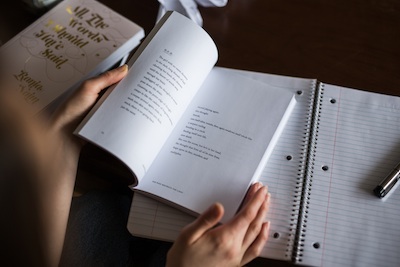
Start early. Start well in advance to avoid cramming. This way, you are prepared the night before an exam. Your score will be much better as a result.
Build a master to-do list and a schedule for the remaining days in the semester. Break cumulative exams into smaller study units. Studying increments prevents you from feeling overwhelmed. It can also aid in monitoring your progress.
Study for the style of exam. Ask about the test format, then study accordingly. Multiple choice exams mean you should know definitions and concepts. Written exams focus on your synthesis of the concepts, so study with examples in mind.
Build a custom study guide. Some teachers provide study guides. But creating your own study guide can help you process the material more efficiently. Outline the important information you need to learn and to refer to it frequently while you study.
Explain concepts aloud. Pretend to teach the material to someone. Use your own words to assess your comprehension. This will aid your memory and help identify growth areas. Use your friends and family as guinea pigs to teach.
Use focus tools. For example, music can help you focus. Listen to music you already know all the words to, but don’t feel compelled to sing along. If it becomes a distraction, try a different focus tool.
Find a study buddy. You and your friends should make a study guide for the final exam separately. Then review the topics together. But do not split the work. You do not want to miss something.
Quiz yourself. Think about and create mock exam questions. You will become more familiar with what you need to study. Also, making questions helps familiarize yourself with the type of language used on the exam. You will be able to set expectations of what you need to focus on by doing so.
Promote relaxation. One example is listening to calming music. You can also stretch, breathe deeply, or meditate. De-stressing can release negative thoughts and boost your confidence.
Go to bed early the night before. Sleep is crucial. “All-nighters,” aka staying up throughout the night to study, are harmful. Studies indicate that late night studying without sleep will actually hurt your performance. So get a good night’s sleep before your test.
